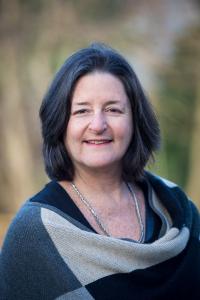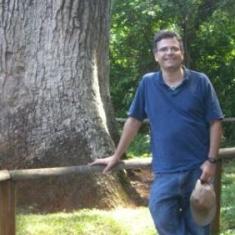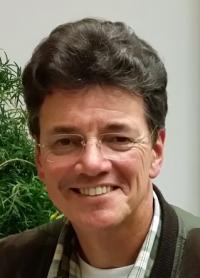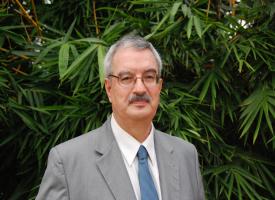Keynote Session
Moderator:
 |
Dr. Sarah Scherr Dr. Scherr is an agricultural and natural resource economist specializing in land management policy in tropical developing countries. In 2011 she led the founding of the Landscapes for People, Food and Nature Initiative, for which EcoAgriculture Partners now serves as secretariat. She currently serves on the U.S. board of the international agricultural biodiversity research organization Bioversity International, as well as on the advisory board of Food Tank, the Scientific Advisory Board for the ASSETS (Attaining Sustainable Services from Ecosystems) research program, as a member of the UN Agri-food Task Force, and on the board of U.S. non-profit Solutions from the Land. Before founding EcoAgriculture Partners, Dr. Scherr held positions as Director of Ecosystem Services at the non-profit Forest Trends; adjunct professor at the University of Maryland, College Park, USA; co-leader of the CGIAR Gender Program; senior research fellow at the International Food Policy Research Institute in Washington, D.C.; and principal researcher at the World Agroforestry Centre based in Nairobi, Kenya. Dr. Scherr received her BA in Economics at Wellesley College, and her MSc and PhD in International Economics and Development at Cornell University. Dr. Scherr is a leading voice globally in promoting the restoration of degraded agricultural lands and new approaches for integrated landscape management. |
Panel 1: Policy Perspectives for Landscape Biodiversity Conservation
Keynote Speaker:
|
Dr. Braulio Ferreira de Souza Dias Dr. Dias has over three decades of experience in biodiversity science and policy and its implementation at national and international levels. He obtained a BSc in Biological Sciences from the University of Brasilia and went on to obtain his PhD in Zoology from the University of Edinburgh in 1981. Before joining the Secretariat of the Convention on Biological Diversity, he was Secretary of Biodiversity and Forests at the Brazilian Ministry of the Environment since September 2010, and before that was Director for Biodiversity Conservation since 1999. During the period 1992-2011, he participated extensively in the major inter-sessional meetings and workshops of the CBD, and played a prominent role in the preparation, conception and negotiation of the Strategic Plan for Biodiversity 2011-2020 and its Aichi Biodiversity Targets, which were adopted by Governments in Nagoya Japan in October 2010. |
|
Keynote Panelist:
 |
Dr. Carlos Alberto de Mattos Scaramuzza Dr. Scaramuzza is the Director of the Biodiversity Conservation Department from Secretary of Biodiversity and Forest of the Brazilian Ministry of Environment. He is a biologist with a PhD in Ecology from the University of Sao Paulo, with 27 years of professional experience in biodiversity conservation. His work has involved policy development, research and project management in Vegetation ecology, land-use dynamics and conservation biology with extensive use of remote sensing and conservation biology. His major areas of expertise are: landscape and community ecology, vegetation dynamics, land use and land cover changes, agroecological zoning, biodiversity evaluation and grasslands, neotropical savanna and rainforest ecology. He has worked as Conservation Director for WWF-Brazil, covering international negotiations and also involving Brazilian Federal and State Governments. |
Panel 2: Ground Implementation of Landscape Biodiversity Conservation
Keynote Panelist:
|
Mr. Hank Cauley Hank Cauley is currently a Senior Officer at the Pew Charitable Trusts and a lecturer with FES (Understanding Environmental Campaigns and Policymaking: Strategies and Tactics) His 25-year career has been evenly split between non-profits and businesses with a heavy emphasis on starting new businesses or initiatives and spanning the boundaries of business, government, environment and social justice issues. Many of the causes that Hank has taken on from starting an energy-saving program in Somalia to a sustainable timber business in Papua New Guinea to protecting large sections of Australia’s outback have required him to use his engineering and business background, extensive experience in challenging social environments, and ability to create or identify value for all stakeholders involved. Much of his worked has required a careful accounting of progress and indicators of success. Hank has a BS and MS in Chemical Engineering and an MBA from Harvard Business School. |
 |
Keynote Panelist:
 |
Dr. Willie Smits Willie Smits is a Dutch born Indonesian environmentalist. He obtained his PhD on tropical forestry from the Agricultural University of Wageningen. After obtaining his doctorate degree, he started doing forestry research for the Indonesian Ministry of Forestry and became the team leader of the Tropenbos Kalimantan program. Under this program he developed techniques that became the national standard for propagation of local tree species. He built the Wanariset herbarium as well as SarVision Indonesia, a company dedicated to mapping for monitoring forests. From 1992-1198 he was the personal advisor to the Minister of Forestry in the Indonesian government. He then became the director of the Gibbon Foundation and founder of the Masarang Foundation. Dr. Smits is also the designer and founder of the Schmutzer Primate Center in Jakarta and the Borneo Orangutan Survival Foundation, which releases hundreds of orangutans to the wild. He also designed and developed the Samboja Lestari Project, which uses mixed reforestation to benefit the environment and local people. He invented the patented “village hub” system for sustainable alternative energy production. Since 2012 Dr. Smits is also director of an almost half million acres large reforestation concession in East-Kalimantan where he creates systems for mixed reforestation. Dr. Smits was made a senior Ashoka fellow for his work creating local sustainable livelihoods. |
